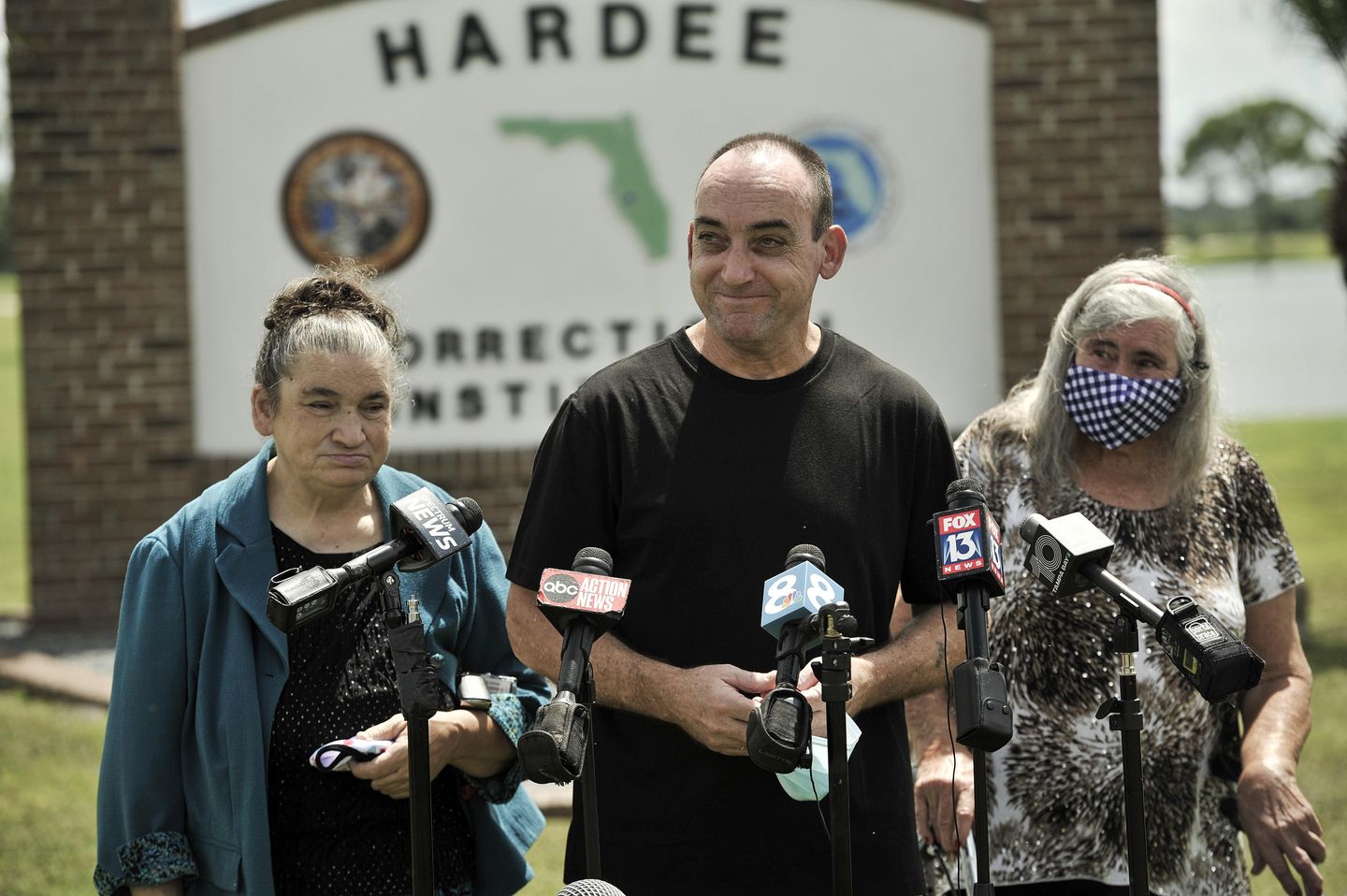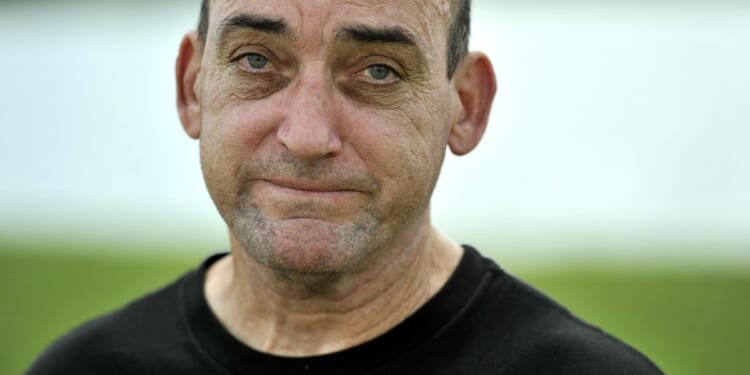
TAMPA, Fla. — Robert DuBoise spent 37 years in a Florida prison for a 1983 rape and murder he did not commit. Now, he’s set to receive $14 million from the city of Tampa as compensation for all those lost years.
DuBoise, who was 18 when the crime occurred, was initially sentenced to death for the killing of 19-year-old Barbara Grams. Although his sentence was later reduced to life in prison, it wasn’t until 2018 – with help from the Innocence Project organization – that prosecutors agreed to give the case another look.
DNA testing that was not available in the early 1980s pointed toward two other men in the slaying, leading to DuBoise‘s release from prison in 2020. Not long after that, DuBoise sued the city of Tampa, police officers who investigated the case and a forensic dentist who had testified that his teeth matched a purported bite mark on the victim.
The lawsuit was settled Jan. 11 but the Tampa City Council voted unanimously Thursday to approve it and officially award the $14 million to DuBoise, now 59. Council members said the money is the least the city could do for him.
“This was a big wrong,” said council member Luis Viera. “I hope and pray this settlement will give him some measure of comfort.”
DuBoise, who did not attend Thursday’s meeting, was represented in the case by the Chicago-based Loevy & Loevy civil rights law firm, which has handled numerous wrongful conviction cases around the country.
“The settlement is not only an acknowledgment of the harm that Mr. DuBoise suffered, but also an opportunity for him to move on with his life,” the law firm said in a statement.
In a brief phone interview after the vote Thursday, DuBoise said that’s exactly what he is doing. He said he works as maintenance director at a Tampa-area country club and does other repair work. He’s planning to buy a house.
“It means to me it’s finally over. I’m glad I don’t have to spend any more years of my life pursuing this,” he said. “Money, houses, cars, none of that stuff can ever restore what I lost. I don’t feel bitter about anything. I don’t want to waste my time with bitterness and pity parties.”
Tampa Police Chief Lee Bercaw said in a statement that in the years since the DuBoise case, detectives undergo better training and that advances in technology have made great strides in how such investigations are handled.
“We recognize the profound and lasting effects of this case, especially on Mr. DuBoise nearly four decades later,” Bercaw said.
DuBoise and his law firm will get $9 million this year, $3 million next year and $2 million in 2026, according to city documents.
Grams was sexually assaulted and beaten to death in August 1983 as she walked home from her job at a Tampa restaurant. A medical examiner concluded a wound on her cheek was a bite mark, leading investigators to take bite samples from a number of men including DuBoise. Notably, the wound impression was made using beeswax.
The forensic dentist determined the bite came from DuBoise, even though he didn’t know Grams but frequented the area where her body was found. The dentist testified as part of DuBoise’s lawsuit that he no longer believes bite marks can be matched directly to an individual person, according to the city council resolution about the settlement.
Decades later, the DNA testing pointed to Amos Robinson and Abron Scott, both of whom are serving life prison sentences for a different killing. They are both awaiting trial on first-degree murder charges in the Grams case.
A prison informant’s testimony that DuBoise confessed to killing Grams was also later discredited. The city denied in the settlement that any of its police officers were guilty of intentional wrongdoing, as DuBoise had contended in the lawsuit.
DuBoise walked out of a Florida prison in August 2020.
‘I prayed to God every day and hoped for it,” DuBoise said moments after his release.
At a court hearing a month later in which the case was finally dropped, DuBoise said he’s had a hard time trusting the judicial system “because I’ve had a lot of roadblocks thrown in my path.” Now, he said he believes justice has been done.
“There are really true-hearted people in these offices now,” DuBoise said. “It’s been amazing. I’m just very grateful to all of you.”












